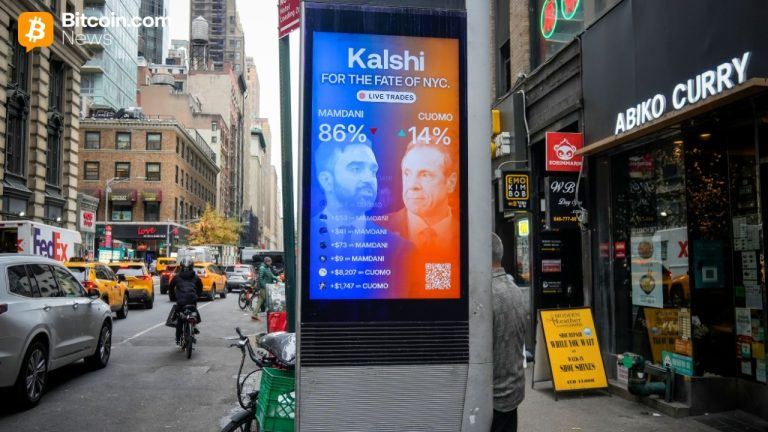Chicago’s assistant finance commissioner finds ‘heart, struggle and empathy’ in finance
5 min read

The worlds of finance and theater might seem very different, but Steven Mahr sees a common thread running through the work that he and his colleagues do to realize the city’s policy visions and the performances that take place on Chicago’s renowned stages.
Mahr, who moved to the city with his wife two years ago, spent that time working for Stifel, where he had worked since 2016, on the bond underwriting side of the business and, since March,helping the city with debt management as the new assistant commissioner in Chicago’s department of finance.
He’s also spent it running in the Chicago Marathon to benefit Lurie Children’s Hospital, making new friends and soaking up the food, hospitality and, yes, theater that Chicago has to offer.
City of Chicago finance department
“My wife works in theater, so we see a lot of it. The playwrights and the artists and the designers, they’re first-class, and they’re a primary reason why so many of those shows, which display a ton of heart and struggle and empathy, have had so much critical success lately,” Mahr told The Bond Buyer, noting that several shows staged in Chicago last year are now on Broadway. “My goal is to take into account that heart and struggle and empathy in the work that our team has the honor of doing each and every day.”
For instance, heart and struggle and empathy all come into play in Chicago’s policy debate around the migrant crisis, Mahr suggested. He acknowledged the buses from Texas have placed Chicago in a budgetary bind, but said the situation also presents an opportunity.
“We are a sanctuary city; there’s an incredible history of Chicago being welcoming for families across the world,” Mahr said. “This is first and foremost a humanitarian mission… I think in the course of fulfilling this mission, we have a really great opportunity to rethink how we allocate resources, what our financial processes look like to ensure that families and communities who have been in the city for decades are part of the conversation, they’re actively heard, and action is actually taken to enhance their well-being with dignity.”
Mahr said he and his colleagues in Mayor Brandon Johnson’s administration are collaborating with their partners in Cook County, the state of Illinois and the federal government to not only address migrants’ immediate needs — safety, health and shelter — but also to factor in job development, long-term housing and infrastructure considerations.
“The financial challenges, as City Council members and others have talked about, are real,” he said.
As he contemplates the major challenges facing Chicago, Mahr said the city’s goal should be what pension and debt experts have called for: reducing the city’s pension shortfall and debt burden while generating enough recurring revenues to sustain a balanced budget.
On the debt management side, “we’re striving to achieve further credit rating upgrades and improve on the success of the past several years,” he said. “Rating upgrades are a huge driver, oftentimes the primary driver, of interest costs. So we’re looking to ease the burden on taxpayers and ratepayers.”
As far as revenue generation goes, he said, the administration is aiming to make “equitable and sound tax policy” that brings Chicago in line with its peers and to confront long-term structural problems in partnership with the state and federal government.
On the near horizon, Mahr is focused on affordable housing, and he welcomed the City Council’s passage of the mayor’s
“This administration worked really diligently to design a program that adequately funds both [the Department of Housing] and [the Department of Planning and Development] while also taking advantage of those [tax increment financing districts] expiring and entering the tax base,” Mahr said.
“We worked a long time trying to build in important transparency measures, both on the bond issuance side and on the program implementation side,” he added. “Between the public dashboard and other resources, [citizens will] be able to see how the city is actively pursuing the development of physical capital and social capital in our communities.”
The city’s finance department anticipates that the funding mechanism behind the bond measure — letting TIF districts expire so that revenue returns to the corporate fund — will help not only DOH and DPD but also Chicago Public Schools and sister agencies, as well as Cook County, he said.
“And I’m optimistic as well that the rating agencies will broadly agree with it,” he said.
Overall, Mahr and his new colleagues are pursuing a vision: holistic approaches to revenue streams and creative thinking around financing strategies. That vision was carried out in last year’s
It was “a good example of both of those key goals,” Mahr said. “A primary purpose of those bond proceeds was to build wealth in historically underinvested communities. And the cross-credit refunding tender is an innovative idea that will continue to be explored by our team as market opportunities arise in the future.”
The deal drew strong interest from retail investors, and Assistant Commissioner Brendan White explained that that “was actually the primary reason why we decided to structure the social bonds on the STSC [Sales Tax Securitization Corporation] credit.”
Originally set up in 2017, the STSC was used only as a refunding vehicle — as an AAA-rated special purpose corporation that could be used to refund BBB-rated general obligation debt. But the city’s finance team soon realized that the rating difference made the STSC an ideal choice if they wanted to create a retail product.
“We’re not giving investment advice, we’re selling securities, but the BBB-rated GO bond is not the ideal retail product, necessarily,” White said. “So we thought, we have this higher rated credit, we could do limited social new money borrowing on the STSC credit. And I think the reaction we got was a vindication of our strategy.”
To address the tough challenges facing Chicago, Mahr and his colleagues may need more than a smart strategy. Such challenges also call for the skills Mahr honed while training as a runner, an interest he shares with Chief Financial Officer Jill Jaworski, he said.
“There were some lessons from that training that can be applied to the city,” he said. “It’s going to be important to keep our vision on the finish line, certain of those long term goals, building up our capacities incrementally as we go, but also, ensuring that each and every day, including today, we’re striving to make progress.”
For Mahr, they also call for what he terms “a student state of mind – always questioning, always learning, always finding connections between things.
“My original interests as a student were always in government and civics, so this role is a return to my roots, in a way,” he said.







